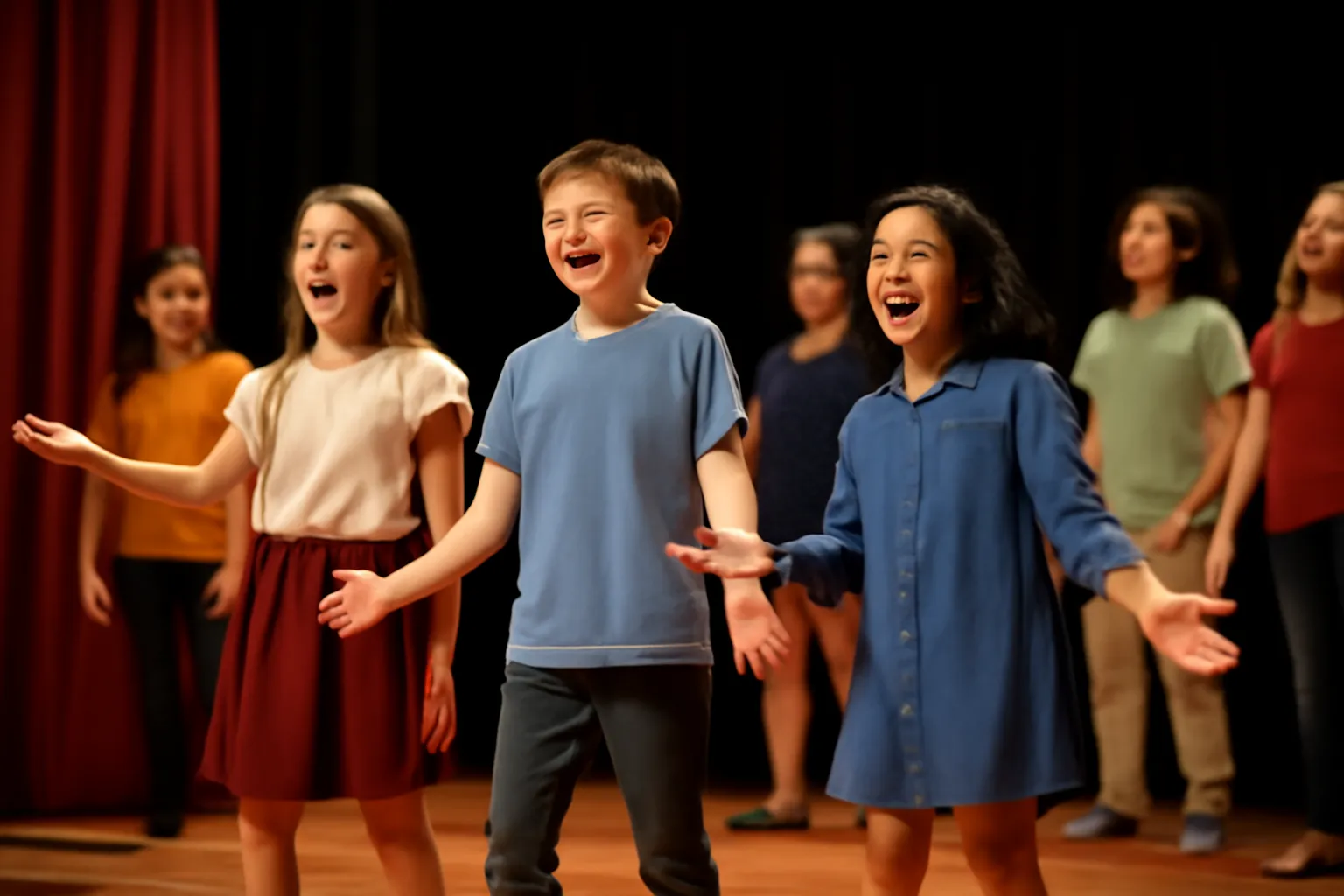An elementary school musical performance is more than just a fun activity—it’s an opportunity for children to develop creativity, teamwork, and confidence. Whether it’s their first time performing or they’re seasoned veterans of the stage, children involved in musical performances experience a world of excitement and growth. One of the key elements that truly brings a musical to life is the song selection. A great elementary school musical song can set the tone, engage the audience, and leave a lasting impact. But what makes a song stand out in a school musical, and how can teachers and directors choose the right one for their students?
Choosing the Right Song for an Elementary School Musical Performance
When it comes to an elementary school musical, the songs should be energetic, relatable, and easy for children to learn. The right song can elevate the entire performance and give young performers a chance to shine. Here’s what to consider when selecting the perfect song:
-
Catchy and Repetitive Melodies: Children connect well with songs that have easy-to-remember tunes. Repetition is important, as it helps them learn the lyrics quickly. Classic examples include songs like “Do-Re-Mi” from The Sound of Music or “The Bear Necessities” from The Jungle Book. These songs are easy to sing along with and remain memorable.
-
Relatable Themes: Kids perform better when they can relate to the song’s themes. For instance, songs about friendship, personal growth, or fun adventures resonate with elementary school students. Choosing songs that align with the themes of the musical ensures the kids feel a connection to the material.
-
Incorporating Movement and Dance: Adding choreographed movements to a song can enhance its appeal. Upbeat songs with rhythm can lead to exciting dance numbers, helping kids become more engaged in the performance. A well-planned song-dance combo like “Supercalifragilisticexpialidocious” from Mary Poppins can provide a fun and high-energy performance.
-
Vocal Range Considerations: While it’s essential for the song to be easy to sing, it’s also necessary to pick a song that fits the vocal abilities of your group. High-pitched songs may be challenging for younger children, while songs in a comfortable range help students focus on performance rather than struggling with high notes.
-
Length of the Song: Since elementary school children have shorter attention spans, it’s best to avoid overly long songs. Aim for songs that are under 4 minutes long, keeping the audience engaged while ensuring the children don’t lose focus.
These considerations can guide teachers and directors in selecting songs that will suit the performers and the overall theme of the musical.
Learn more about how to create a perfect musical performance!
Crafting a Memorable Elementary School Musical Script
The script is the foundation of any successful elementary school musical. A well-crafted script ensures that the narrative flows smoothly and gives the kids something exciting to act out. But how can you write a script that is both entertaining and educational for young performers?
-
Simple Yet Engaging Storyline: The best elementary school scripts feature simple storylines that are easy to follow but still have enough twists and turns to keep the children engaged. Whether it’s a fairy tale, an adventure, or a whimsical story, make sure the plot is understandable and doesn’t confuse young actors.
-
Character Development: Create memorable characters that children can embody and connect with. Each character should have distinct traits that kids can play up—whether it’s a hero, a villain, or a funny sidekick. Allow the kids to bring their personalities into the roles, which can make their performances feel more authentic and lively.
-
Dialogue That Is Fun to Deliver: Kids love humor, so try to incorporate witty lines and playful exchanges into the script. The best lines often come from the children themselves, so be sure to encourage improvisation during rehearsals. A script with natural, funny dialogue will keep the kids excited about performing.
-
Interactive Elements: Many successful scripts include moments where the audience is invited to participate. For example, in songs, you can have the children ask the audience to sing along or clap their hands. This creates a shared experience that connects the performers to the audience.
-
Clear Stage Directions: For children new to performing, it’s helpful to provide simple stage directions. Whether it’s a “look surprised” or “take a step to the left,” clear instructions ensure everyone knows where to be at the right time, making the performance run smoothly.
By focusing on these aspects, you can write a musical script that excites the performers and gives them the tools to create a memorable show.
Discover more tips for writing an engaging musical script!
The Role of Elementary School Musical Songs in Performance
Songs in an elementary school musical serve more than just an entertainment purpose—they play an integral role in developing the skills and confidence of young performers. Here’s why musical songs are such an important part of the experience:
-
Enhancing Confidence and Expression: Performing a song allows children to express themselves in a safe environment. Singing in front of their peers builds their self-esteem, helping them develop the confidence to perform in front of an audience. The practice of projecting their voice and making eye contact is a key skill that benefits them in other areas of life as well.
-
Teamwork and Collaboration: Singing together in a group teaches kids about teamwork. They need to listen to one another, follow the conductor, and harmonize to create a unified sound. This collaboration fosters communication skills and helps them work well with others, which is valuable both on and off the stage.
-
Memory and Cognitive Skills: Learning lyrics and choreography simultaneously challenges children’s memory and cognitive abilities. It enhances their focus and improves their ability to memorize and retain information. Plus, the repetitive nature of songs helps kids retain the material, which makes it easier for them to participate in the performance with minimal stress.
-
Entertainment Value: Music is universally loved, and it holds a special place in the hearts of young audiences. The right song can turn an ordinary performance into an unforgettable experience. The excitement of seeing children sing and dance can be contagious, and it keeps the audience engaged from beginning to end.
-
Inspiring Creativity and Imagination: Children are natural creators, and musical songs allow them to use their imagination to bring characters and stories to life. From interpreting their roles to adding personal flair to a song, kids learn to think creatively and explore their artistic side.
By understanding the importance of music in an elementary school performance, directors and teachers can better utilize it to enhance the overall experience for both performers and the audience.
Want to learn more about the impact of music in school performances?
Conclusion
Elementary school musical performances are a wonderful opportunity for children to shine, and the right musical song can make all the difference in creating a memorable experience. Whether selecting a song, writing the script, or guiding young performers through rehearsals, the goal is to inspire confidence, foster creativity, and create lasting memories. As we have seen, musical songs play an integral role in enhancing teamwork, memory, and performance skills. By choosing the right songs, scripts, and fostering a creative environment, you can ensure that every musical performance becomes a highlight in the lives of young performers and their audience.






